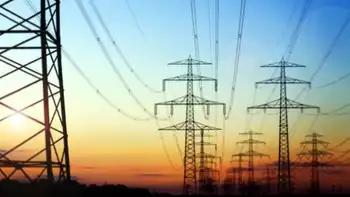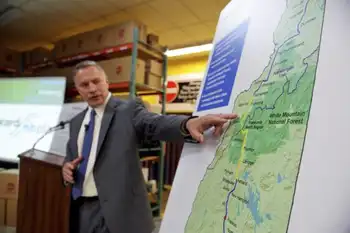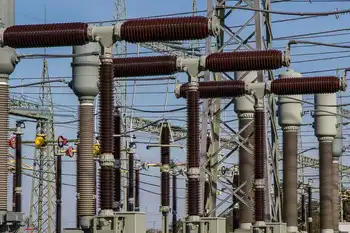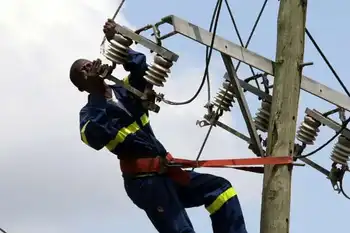Power providers say legislation would raise prices
By Associated Press
Electrical Testing & Commissioning of Power Systems
Our customized live online or in‑person group training can be delivered to your staff at your location.

- Live Online
- 12 hours Instructor-led
- Group Training Available
"Revenues associated with pricing greenhouse gases would be returned to the very consumers who would be at risk for paying higher energy prices," said Richard Morgan, who leads the District of Columbia's Public Service Commission.
These higher prices would be the result of legislation that would put a price on the gases linked to global warming.
The providers say the best way to keep the electricity sector from passing on the cost of reducing greenhouse gases is to initially give away allowances to emit pollution, not sell them, as proposed by President Barack Obama.
The president's budget assumes that allowances will be sold and uses the projected $650 billion in revenue to help people pay for higher energy costs and to develop new, more climate friendly energy sources.
"It should not be legislation that is designed to raise revenue.... It should be something that is trying to achieve its objective of reducing carbon emissions in the country and that alone," said Glenn English, CEO of the National Rural Electric Cooperative Association, which represents 42 million consumers in 47 states.
"Auction is not a good idea," he said. "We would discourage the committee from going down that road."
If the allowances are sold, electricity customers will face what Jeffry Sterba, who spoke on behalf of the Edison Electric Institute, called a "double whammy" — paying for both the price of the allowance and the cost of technologies to reduce emissions.
Representatives for rural cooperatives, utility commissions, and electric utilities told lawmakers that if they were given the allowances, they could protect consumers from higher energy prices. They said that if Congress decided to give them to the producers of electricity, it would be a windfall for shareholders.
Rep. Ed Markey, D-Mass., who is sponsoring the bill with Rep. Henry Waxman, D-Calif., has already said it should not require 100 percent auction at the onset of a cap-and-trade program.
"At the top we cannot auction off all those credits... but in the long run it will be our goal. We need a transition period," Markey said at a recent energy conference at MIT.
Suggestions on how to lessen the impact of global warming legislation came during the third day of congressional hearings. The additional costs to consumers, along with the loss of manufacturing jobs, represent significant stumbling blocks for Democratic lawmakers and the Obama administration, who hope to push the bill through Congress this year.
As the hearings dragged on, moderate Democrats behind the scenes were already pressing for changes to the bill that would ease the cost for energy-intensive industries in their districts.
Rep. Rick Boucher, D-Va., had an hourlong meeting with Waxman Thursday to deliver a set of recommendations that he said the 40 Democrats in the House from coal-producing states would support.
"There would be sufficient support to pass the legislation through the committee and through the House if these recommendations are accepted," Boucher said in an interview with The Associated Press. Boucher, the former head of the subcommittee crafting the bill, has been conspicuously absent from the hearings all week as he has conducted closed-door negotiations.
He refused to go into specifics, saying that the negotiations were private.
But he did say the suggested changes fell into five broad categories, including how emissions allowances would be distributed, how fast and deep cuts in climate-changing pollution would be made, and how much electricity would have to be generated from renewable sources.
The draft global warming bill calls for a reduction of greenhouse gases by 20 percent from 2005 levels by 2020, and 83 percent by mid-century. It also would require utilities to produce a quarter of their electricity from renewable sources by 2025.
A bill proposed by Boucher and Rep. John Dingell, D-Mich., last year only called for reductions of 6 percent by 2020 to provide more time for technology to reduce greenhouse gases to be developed.
On allowances, many coal-state Democrats have said they would like them given away for free in the early stages.
The draft bill is silent on how they would be distributed to companies and which companies, those producing power or those distributing it, would receive them. That's critical in determining how much the legislation — which will put a price on global warming gases — would increase energy costs.
In a hearing room a floor below, Actress Ashley Judd and TV personality Jeff Corwin were telling another panel of lawmakers that global warming legislation should address not just the causes of global warming, but its effects. They pressed Congress to spend $7 billion a year to help safeguard America's wildlife from the impacts.











